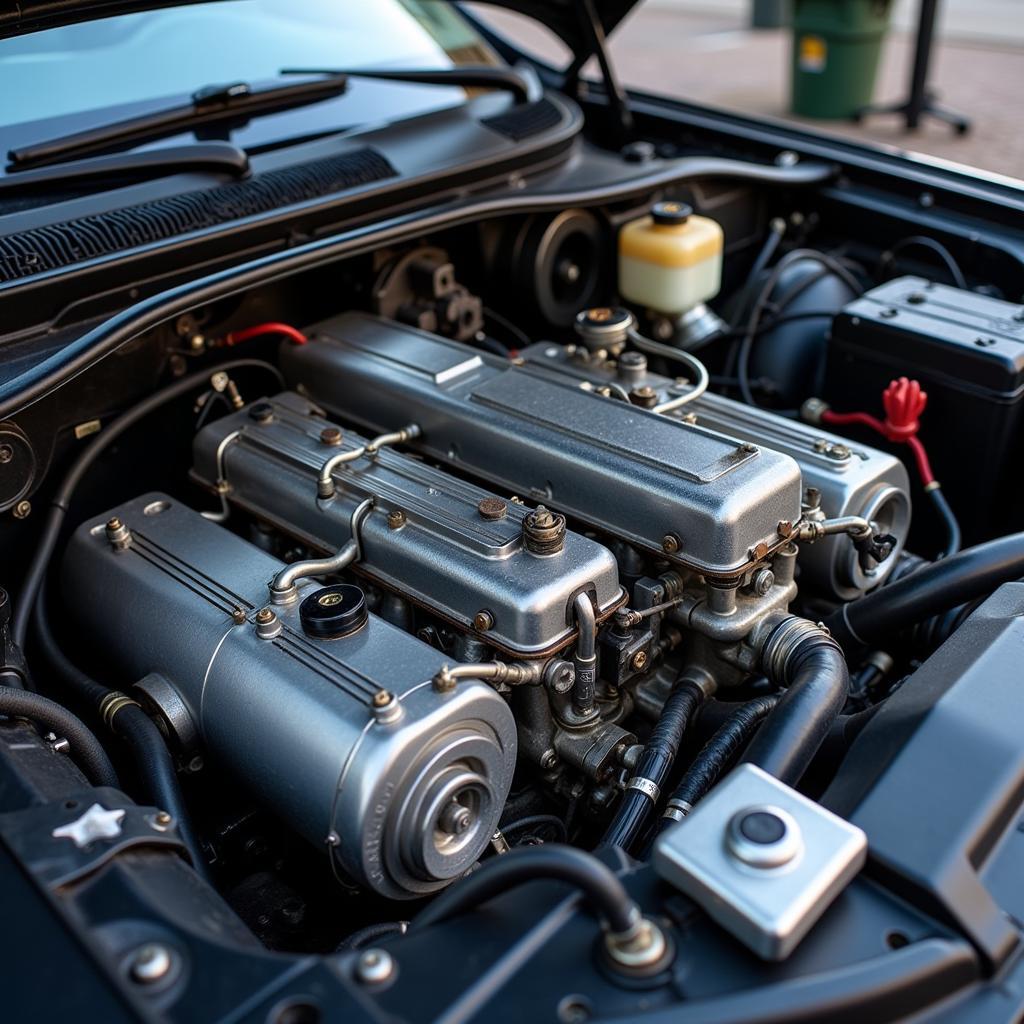Experiencing unusual Car Problem Sounds When Accelerating can be unsettling. Whether it’s a whine, a growl, a knock, or a clunk, these noises often indicate underlying mechanical issues that require attention. Understanding these sounds can save you time, money, and potential headaches down the road. This guide will help you diagnose and troubleshoot common car noises related to acceleration.
Addressing stalling problems car is essential for safe and reliable driving.
Why is My Car Making Noise When I Accelerate?
There are numerous reasons why your car might make noise when you accelerate. These sounds can originate from various components within your vehicle’s engine, transmission, drivetrain, or even the exhaust system. Pinpointing the source of the noise is the first step towards a solution.
Different sounds, from knocks to clunks, indicate various mechanical problems on cars.
Common Car Noises and Their Potential Causes
-
Whining Noise: A whining sound that increases in pitch with acceleration often points to a problem with the transmission, particularly with automatic transmissions. It could indicate low transmission fluid, a worn-out transmission pump, or damaged gears. In some cases, it can also relate to the power steering system if the noise changes when you turn the steering wheel.
-
Grinding Noise: A grinding noise, especially when shifting gears, could signify issues with the clutch or transmission. If you drive a manual transmission car, the clutch might be worn out or not disengaging properly. In automatic transmissions, a grinding noise could indicate worn-out gears or internal transmission damage.
-
Knocking or Pinging Noise: A knocking or pinging sound, also known as engine knock or detonation, usually arises within the engine itself. This could be due to low-octane fuel, carbon buildup in the combustion chambers, or problems with the ignition timing.
 Engine knock sound during acceleration
Engine knock sound during acceleration
-
Rumbling Noise: A low rumbling noise that increases with acceleration could indicate an issue with the exhaust system. A hole in the muffler, a damaged catalytic converter, or a loose exhaust pipe can all cause this type of noise.
-
Clicking Noise: A rhythmic clicking sound, particularly when accelerating at low speeds, could point to a problem with the constant velocity (CV) joints in the axles. Damaged CV joint boots can allow dirt and debris to contaminate the joint, leading to wear and tear and eventually a clicking noise.
Understanding how to know when there’s a problem with your car axle is crucial for preventing further damage and ensuring safe driving.
- Squealing Noise: A high-pitched squealing noise that occurs when accelerating could be caused by a slipping serpentine belt or a failing alternator bearing. In some cases, this type of sound can appear during start up and fade with increasing engine RPMs.
If you experience Lincoln Town Car alternator problems, it’s important to address them promptly.
Troubleshooting Car Acceleration Noises
-
Check Fluid Levels: Start by checking the levels of essential fluids like engine oil, transmission fluid, power steering fluid, and coolant. Low fluid levels can cause various noises and performance issues.
-
Inspect the Exhaust System: Visually inspect the exhaust system for any signs of damage, such as holes, rust, or loose components.
-
Listen Carefully: Pay close attention to when the noise occurs. Does it happen only when accelerating, or does it also occur when decelerating, idling, or turning? This information can help narrow down the possible causes.
-
Consult a Mechanic: If you’re unsure about the source of the noise or how to fix it, it’s best to consult a qualified mechanic. They have the expertise and tools to diagnose and repair complex car problems.
Conclusion
Addressing car problem sounds when accelerating promptly is crucial for maintaining your vehicle’s health and preventing further damage. By understanding the different types of noises and their potential causes, you can take the necessary steps to resolve the issue and ensure a safe and enjoyable driving experience. For further assistance or if you’re unsure about diagnosing the problem yourself, don’t hesitate to contact AutoTipPro at +1 (641) 206-8880 or visit our office at 500 N St Mary’s St, San Antonio, TX 78205, United States.
There can be certain problems with automatic transmission cars, especially in specific regions like India.
FAQ
-
What is the most common cause of whining noise when accelerating? Low transmission fluid is often the culprit.
-
Can a bad spark plug cause a knocking noise? Yes, faulty spark plugs can contribute to engine knock.
-
Is it safe to drive with a rumbling exhaust? While it might be drivable for a short time, it’s best to address it quickly as it could indicate a more serious issue.
-
How often should I check my car’s fluids? It’s recommended to check your fluids at least once a month.
-
What is a CV joint? A CV joint allows the axles to transfer power to the wheels while turning.
-
Can a loose belt cause a squealing noise? Yes, a loose or worn serpentine belt can cause a high-pitched squeal.
-
How much does it typically cost to fix car acceleration noise problems? The cost varies depending on the source and severity of the problem.




Leave a Reply